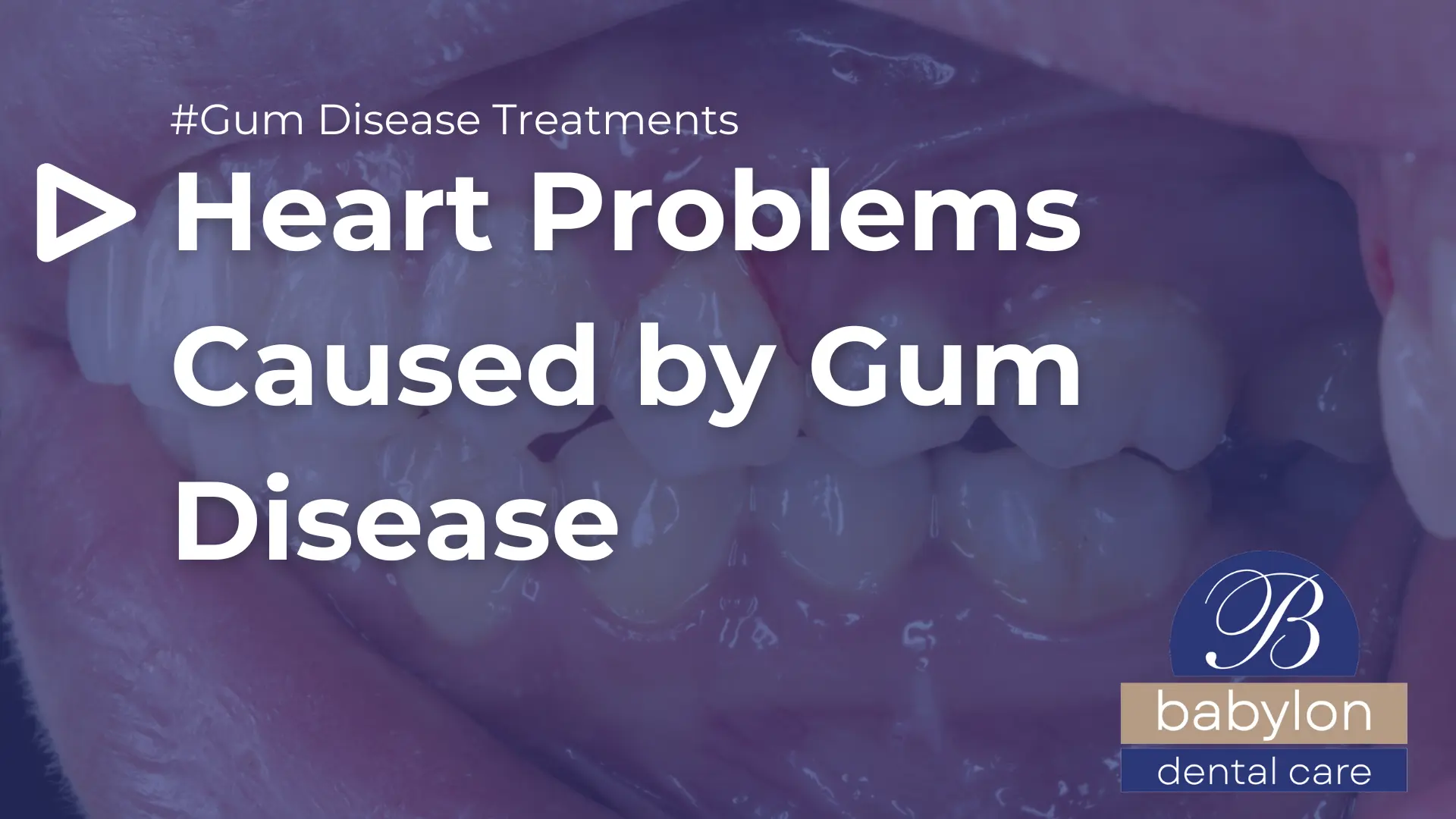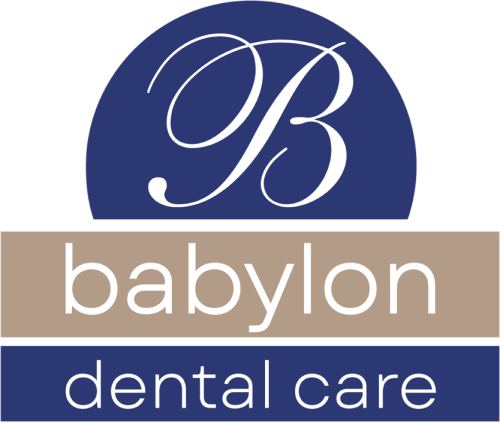
Researchers have studied the possible link between gum disease and heart-related conditions. After all, inadequate dental care can cause many medical problems, such as diabetes, cancer, and even heart disease. That’s why dentists and other healthcare professionals recommend practicing good hygiene to contribute to overall good health.
Symptoms of Gum Disease
A bacterial infection typically causes gingivitis and inflammation of the gums. If left untreated, it could develop into gum disease, also referred to as periodontal disease or periodontitis.
An infection forms in the spaces between a person’s gums and the bottom of the teeth if plaque or food becomes trapped there. Over time, damage to soft tissue and the bones that support the teeth can occur. Eventually, the teeth fall out, or a dentist must remove them.
The most common symptoms of gum disease include:
- Tooth sensitivity
- Tender, red, or swollen gums
- Loose teeth
- Pain while chewing
- Bad breath even after brushing teeth
- Receding gums
- Malocclusion, misaligned teeth
- Pus between the gums and teeth
- Bleeding gums when flossing or brushing
Certain people are at an increased risk of gingivitis and periodontitis if any of these factors apply them:
- Tobacco use
- Pregnancy
- Poorly fitting dental appliances
- Diabetes
- Crooked teeth
- Genetics
- Damaged fillings
- Compromised immune system from diseases such as AIDS and HIV
- Taking medications such as steroids, calcium channel blockers, oral contraceptives, anticonvulsants, and chemotherapy drugs
If you notice any of these symptoms, make an appointment with your dentist immediately for a dental exam. They can perform X-rays and check your gums and teeth to determine if you have periodontitis.
The first line of defense against gum disease is good oral hygiene. However, if you were diagnosed with gingivitis or periodontal disease, some treatments can cure the infection, manage symptoms, and prevent further damage to your teeth and gums.
What is Cardiovascular Disease?
Cardiovascular disease refers to multiple conditions:
- Heart disease – This results from atherosclerosis, meaning the arteries in a person’s body have narrowed, making it harder for blood to reach the heart or blocking blood flow entirely.
- Heart attack – A heart attack happens when a blood clot prevents a part of the heart from receiving adequate blood flow. This causes the connecting artery to die.
- Stroke – Two types of stroke can occur. An ischemic stroke happens when a blood clot blocks the blood vessels leading to the brain. A hemorrhagic stroke is caused by a bursting blood vessel in the brain.
- Heart failure – This is also referred to as congestive heart failure. That means the body isn’t receiving the blood and oxygen it needs because the heart isn’t pumping normally.
- Heart valve problems – Valves open and close to allow blood to flow in and out of the heart. If the valve doesn’t open enough, the heart won’t receive a sufficient blood supply. If the valve doesn’t close completely, blood can leak out into the chamber of the heart.
- Arrhythmia – An arrhythmia means the heart beats irregularly, too slow, or too fast. This can prevent the heart from pumping enough blood throughout the body.
How Periodontal Disease Affects Cardiovascular Health
 Scientists believe the primary link between gum disease and heart problems is inflammation. Inflammation causes atherosclerosis, a narrowing, and hardening of the arteries that block blood flow. If there’s inadequate blood flow to the heart, it increases the risk of a stroke and heart attack.
Scientists believe the primary link between gum disease and heart problems is inflammation. Inflammation causes atherosclerosis, a narrowing, and hardening of the arteries that block blood flow. If there’s inadequate blood flow to the heart, it increases the risk of a stroke and heart attack.
The gums contain many blood vessels. Since the mouth carries significant bacteria, it could penetrate damaged gums and enter the bloodstream. As it travels throughout the body, it triggers inflammation, causing additional damage to blood vessels and vital organs, including the heart.
Heart-Related Problems Associated with Gum Disease
Although studies haven’t conclusively linked gum disease to cardiovascular issues, researchers have found evidence that gum inflammation could affect the heart. Inflammation of major arteries could prevent blood from flowing to the heart and lead to medical conditions such as:
- Heart attack
- Stroke
- Atherosclerosis
- Cardiovascular disease
Additional complications, such as lung disease and birth defects, can also occur if you develop periodontal disease. Fortunately, it’s easy to maintain your oral health, so your body doesn’t experience the adverse effects of gum inflammation and infections.
Preventative Care to Maintain Your Oral Health
 You could prevent periodontal disease and the associated complications by keeping your gums healthy. Dentists recommend brushing your teeth twice a day, once in the morning and before you go to bed. You should also floss your teeth to remove food and plaque your toothbrush might have missed.
You could prevent periodontal disease and the associated complications by keeping your gums healthy. Dentists recommend brushing your teeth twice a day, once in the morning and before you go to bed. You should also floss your teeth to remove food and plaque your toothbrush might have missed.
You can’t take care of your gums on your own. You should visit your dentist regularly for cleanings to remove tartar and plaque you weren’t able to brush away yourself. Your dentist can also perform X-rays and a thorough examination of your mouth to discover potential issues. If you already have gingivitis, they can advise you on what you can do to reverse the effects.
Cleaning your teeth and gums requires more than just going through the motions. Be sure to use the right dental products. Toothpaste containing chloride can fight gingivitis, whiten your teeth, and keep your breath fresh. A therapeutic mouthwash can reduce plaque, remove food particles and debris, minimize the development of tartar, and prevent gingivitis.
If you smoke, quit now. It’s more challenging for your body to fight off a gum infection since smoking weakens the immune system. Additionally, smoking has been linked to a range of severe medical issues and diseases.
Treatments for Gum Disease
If you already have gum disease, you could seek various treatments to clean your teeth and prevent further damage to the gums, bones, and blood vessels.
Common gum disease treatments include:
- Antibiotics – An oral or topical antibiotic can fight a bacterial infection affecting your gums.
- Scaling – A dental professional can remove bacteria and tartar from the surface of your teeth and below the gum line using a laser, ultrasonic device, or another scaling instrument.
- Root planning – Root planning can prevent an additional build-up of bacteria and tartar by smoothing the surfaces of the roots in your gums. It can also reattach the gums to the surfaces of the teeth so food and other debris won’t become trapped in those spaces.
- Surgery – Several surgical options are available to repair damaged soft tissue, bone, and other areas of the gums.
Talk to your dentist about which treatment plan would work best for you.
Contact Babylon Dental Care
If you want to learn how to prevent gum disease from negatively affecting your heart, call Babylon Dental Care at (631) 983-6665 today.
Our team of dental professionals will create a preventative care strategy to maintain the appearance of your teeth and gums while protecting your overall health.
